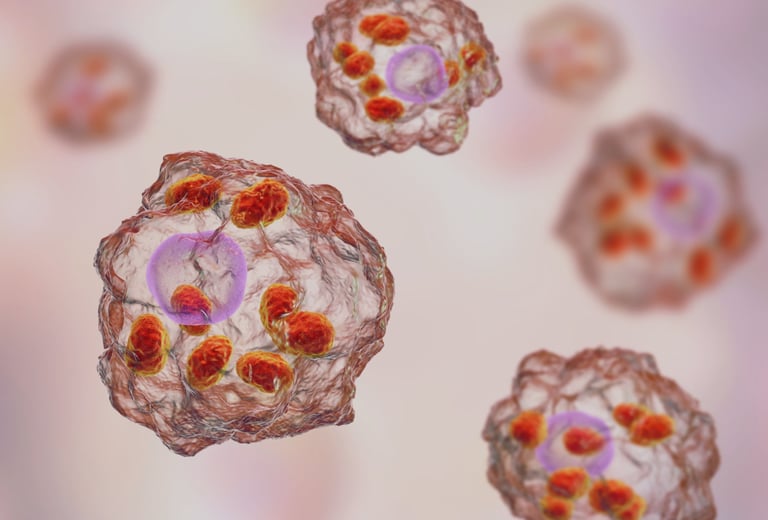
Inflammation
Controlling NLRP3 inflammasome activation could lead to new therapies
Inflammation is the immune system's natural response to a disease. It activates immune cells to eliminate pathogens.
A fundamental pathophysiology underlying inflammatory disease development is organ damage caused by inflammation. The infiltration of macrophages is essential for organ damage, inflammation, and fibrosis, all of which contribute to the course of the disease. Accumulated macrophages develop into pro-inflammatory types, leading to inflammation, fibrosis, injury, and organ damage.
Leucine-rich repeat and pyrin domain containing 3 (NLRP3) inflammasome is a critical intracellular protein complex that regulates inflammation in multiple diseases. Microbes and danger signals trigger NLRP3 activation, releasing the pro-inflammatory cytokines IL-1, IL-18, and a caspase-1-mediated pro-inflammatory form of cell death, pyroptosis. NLRP3 inflammasome activates caspase-1 to convert IL-1b and IL-18 to their mature, bioactive forms.
Excessive or prolonged activation of the NLRP3 inflammasome has been implicated in the development of multiple chronic inflammatory and autoimmune diseases, including those caused by microbial infections, inflammatory diseases, cancer, metabolic disorders, and autoimmune diseases.
Therefore, blocking NLRP3 is an emerging treatment for numerous inflammatory disorders.


What is inflammation?
Advanced cell technologies can treat inflammation and target NLRP3
Mesenchymal stem cells are specialized cells capable of self-renewal and proliferation, making them an attractive candidate for regenerative medicine and tissue engineering applications.
These cells release anti-inflammatory molecules and suppress the activity of immune cells that cause inflammation. Cells can suppress the activation of NLRP3 inflammasome in multiple immune cells and diseases. MSCs can directly target NLRP3 at its foundational stage rather than other upstream and downstream inflammasome components, such as caspase-1 or IL-1β.
MSCs modulate the function of immune cells such as T, B, and dendritic cells and reduce the production of pro-inflammatory cytokines.
Cells can migrate to sites of inflammation in response to chemokines and cytokines and interact with immune cells to exert their immunomodulatory effects.


Translational research challenges
By regulating the foundational NLRP3 inflammasome activation, we may provide new opportunities for developing therapies for NLRP3-driven immunopathologies.
Our translational clinical research focus:
engineering mesenchymal stem cells
improving upstream and downstream manufacturing
stratifying and profiling patient health status
establishing in-process and release quality control
optimizing the formulation, route of application, and dosing regimens


